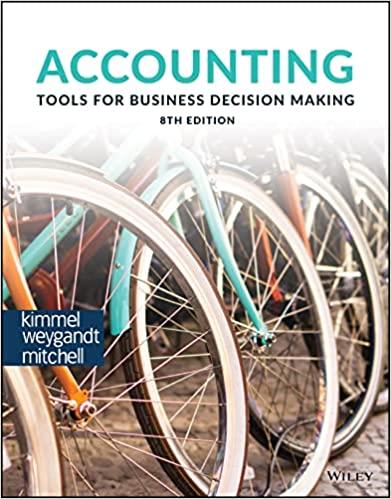Question
Analysis and Interpretation of Profitability Balance sheets and income statements for Target Corporation follow. Income Statement For Fiscal Years Ended ($ millions) 2008 2007 2006
Analysis and Interpretation of Profitability Balance sheets and income statements for Target Corporation follow.
| Income Statement | |||
|---|---|---|---|
| For Fiscal Years Ended ($ millions) | 2008 | 2007 | 2006 |
| Sales | $ 61,471 | $ 57,878 | $ 51,271 |
| Credit card revenues | 1,896 | 1,612 | 1,349 |
| Total revenues | 63,367 | 59,490 | 52,620 |
| Cost of sales | 41,895 | 39,399 | 34,927 |
| Selling, general and administrative expenses | 13,704 | 12,819 | 11,185 |
| Credit card expenses | 837 | 707 | 776 |
| Depreciation and amortization | 1,659 | 1,496 | 1,409 |
| Earnings before interest and income taxes | 5,272 | 5,069 | 4,323 |
| Net interest expense | 647 | 572 | 463 |
| Earnings before income taxes | 4,625 | 4,497 | 3,860 |
| Provisions for income taxes | 1,776 | 1,710 | 1,452 |
| Net earnings | $ 2,849 | $ 2,787 | $ 2,408 |
| Balance Sheet | ||
|---|---|---|
| ($ millions, except footnotes) | February 2, 2008 | February 3, 2007 |
| Assets | ||
| Cash and cash equivalents | $ 2,450 | $ 813 |
| Credit card receivables | 8,054 | 6,194 |
| Inventory | 6,780 | 6,254 |
| Other current assets | 1,622 | 1,445 |
| Total current assets | 18,906 | 14,706 |
| Property and equipment | ||
| Land | 5,522 | 4,934 |
| Buildings and improvements | 18,329 | 16,110 |
| Fixtures and equipment | 3,858 | 3,553 |
| Computer hardware and software | 2,421 | 2,188 |
| Construction-in-progress | 1,852 | 1,596 |
| Accumulated depreciation | (7,887) | (6,950) |
| Property and equipment, net | 24,095 | 21,431 |
| Other noncurrent assets | 1,559 | 1,212 |
| Total assets | $ 44,560 | $ 37,349 |
| Liabilities and shareholders' investment | ||
| Accounts payable | $ 6,721 | $ 6,575 |
| Accrued and other current liabilities | 3,097 | 3,180 |
| Current portion of long-term debt and notes payable | 1,964 | 1,362 |
| Total current liabilities | 11,782 | 11,117 |
| Long-term debt | 15,126 | 8,675 |
| Deferred income taxes | 470 | 577 |
| Other noncurrent liabilities | 1,875 | 1,347 |
| Shareholders' investment | ||
| Common stock | 68 | 72 |
| Additional paid-in-capital | 2,656 | 2,387 |
| Retained earnings | 12,761 | 13,417 |
| Accumulated other comprehensive income (loss) | (178) | (243) |
| Total shareholders' investment | 15,307 | 15,633 |
| Total liabilities and shareholders' equity | $ 44,560 | $ 37,349 |
HINT:For Sales use "Total revenues" for your computations, when applicable.
(a) Compute net operating profit after tax (NOPAT) for 2008. Assume that the combined federal and statutory rate is: 39%. (Round your answer to the nearest whole number.)
2008 NOPAT = Answer
($ millions) (b) Compute net operating assets (NOA) for 2008 and 2007.
2008 NOA = Answer
($ millions) 2007 NOA = Answer
($ millions)
(c) Compute Target's RNOA, net operating profit margin (NOPM) and net operating asset turnover (NOAT) for 2008. (Do not round until final answer. Round two decimal places. Do not use NOPM x NOAT to calculate RNOA.)
2008 RNOA = Answer
% 2008 NOPM = Answer
% 2008 NOAT = Answer
(d) Compute net nonoperating obligations (NNO) for 2008 and 2007.
2008 NNO = Answer
($ millions) 2007 NNO = Answer
($ millions) (e) Compute return on equity (ROE) for 2008. (Round your answers to two decimal places. Do not round until your final answer.)
2008 ROE = Answer
% (f) Infer the nonoperating return component of ROE for 2008. (Use answers from above to calculate. Round your answer to two decimal places.)
2008 nonoperating return = Answer
% (g) Which of the following statements reflects the best inference we can draw from the difference between Target's ROE and RNOA?
ROE > RNOA implies that Target's equity has grown faster than its NOA.
ROE > RNOA implies that Target has taken on too much financial leverage.
ROE > RNOA implies that Target is able to borrow money to fund operating assets that yield a return greater than its cost of debt; the excess accrues to the benefit of Target's stockholders.
ROE > RNOA implies that Target has increased its financial leverage during the period.
Step by Step Solution
There are 3 Steps involved in it
Step: 1

Get Instant Access to Expert-Tailored Solutions
See step-by-step solutions with expert insights and AI powered tools for academic success
Step: 2

Step: 3

Ace Your Homework with AI
Get the answers you need in no time with our AI-driven, step-by-step assistance
Get Started


